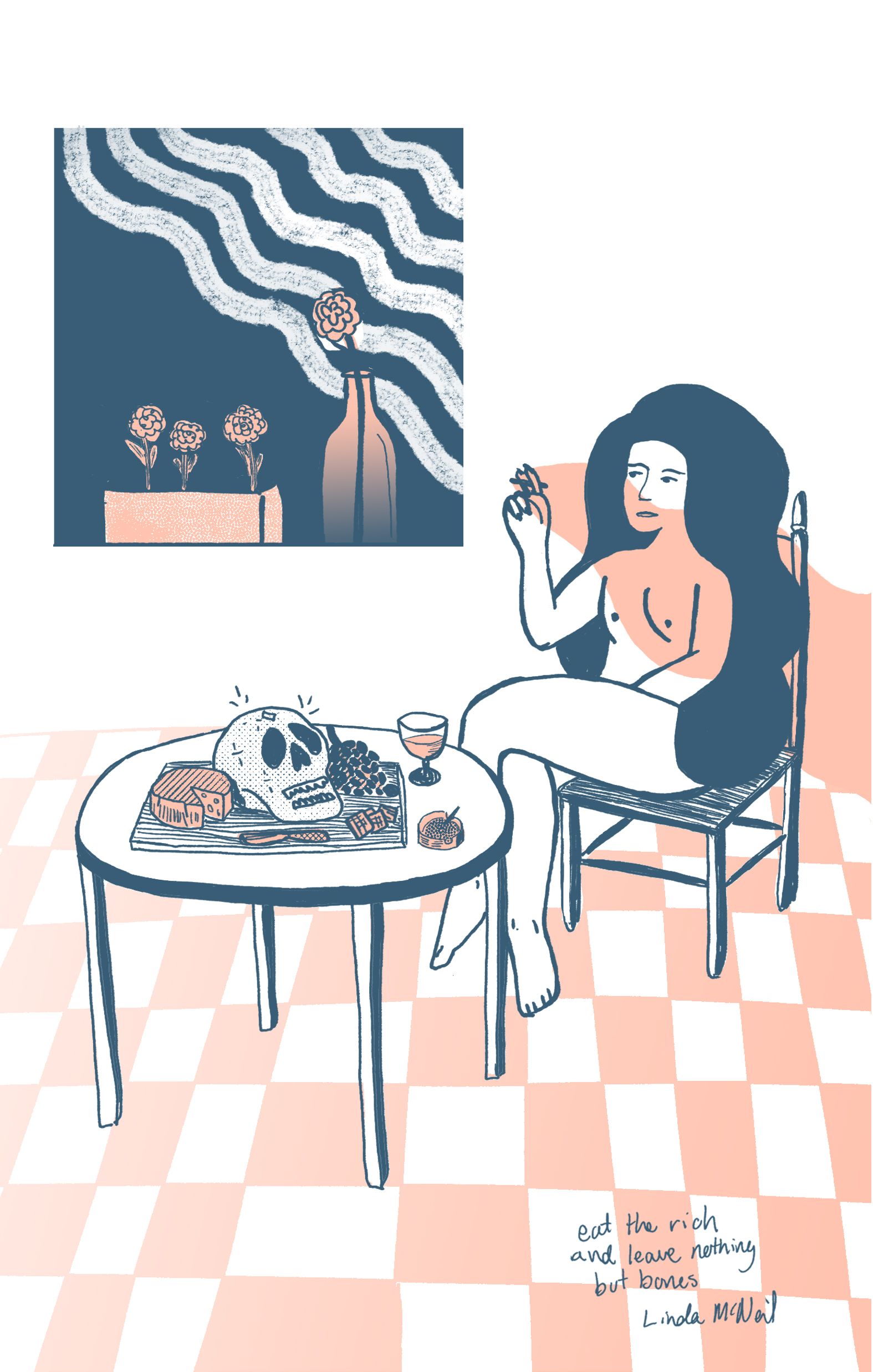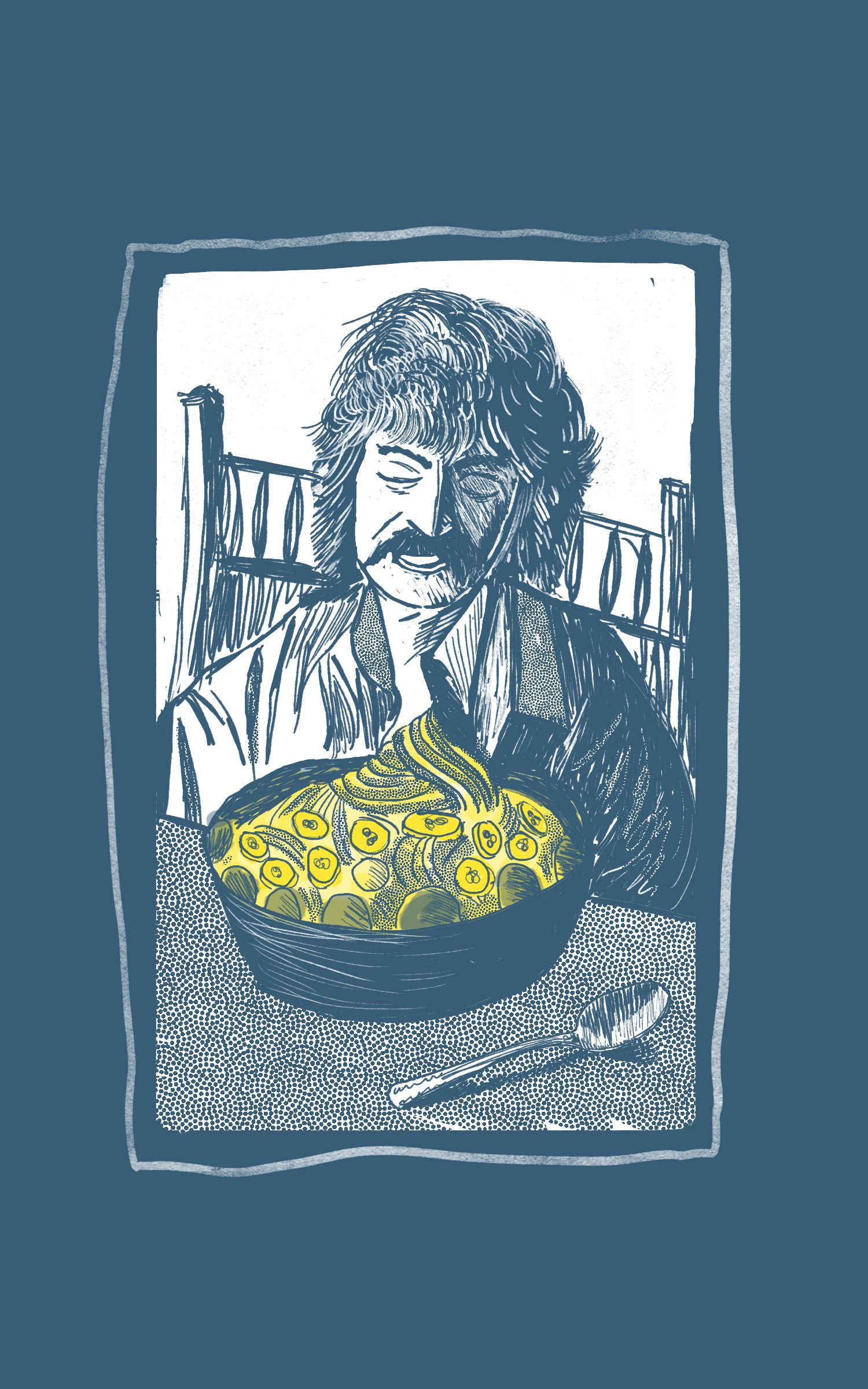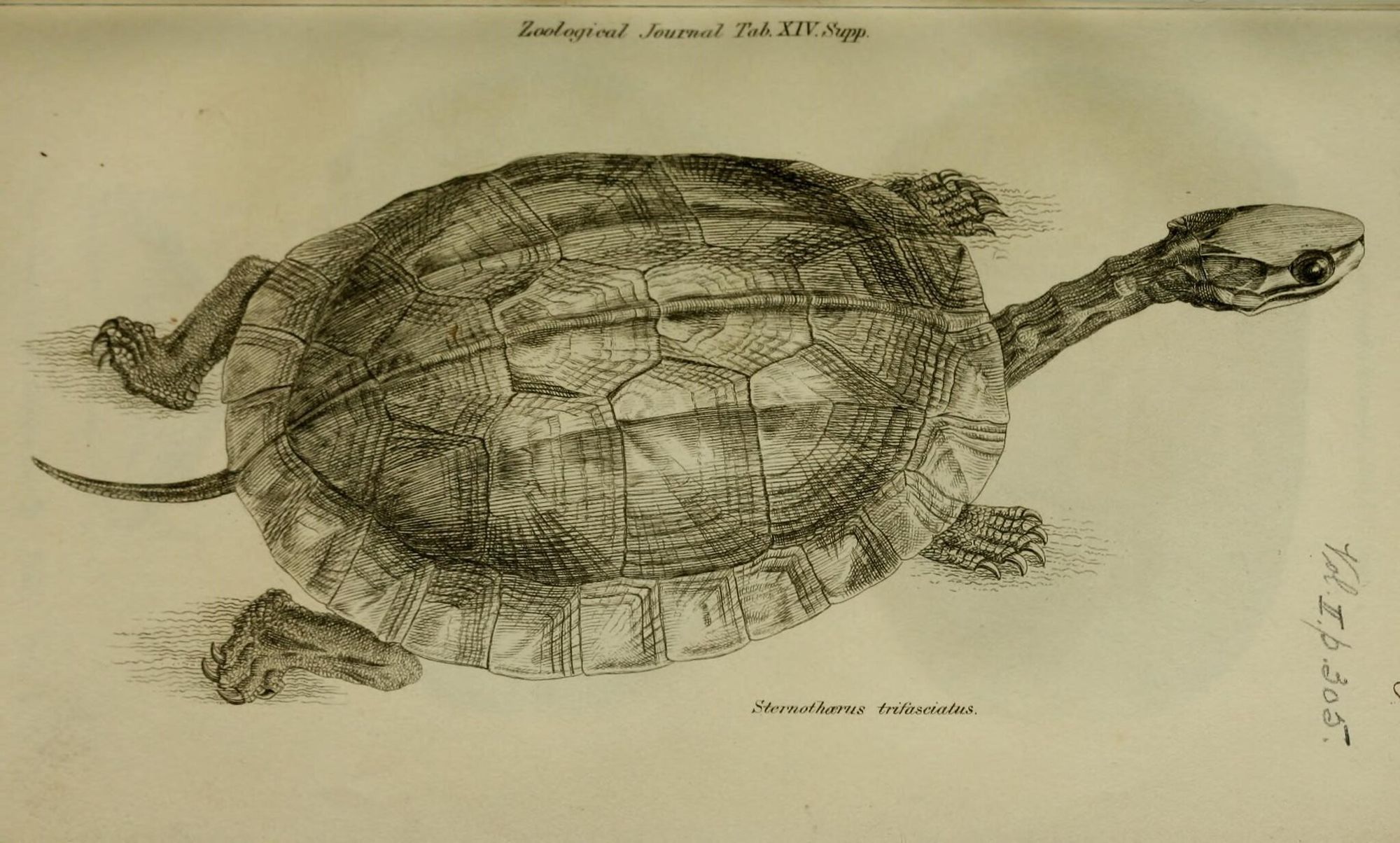I don't think I could do what they're having to do
That's just the tip of the iceberg in my estimation

Smash that subscribe button for me please and thank you.
“I'm a bit of a wreck lately,” Glen told me. He’s a farmer in Illinois and it occurred to me when he wrote in to this Hell World subscriber message board that I almost never think about farming or farmers aside from when I share a story in here like the one the other day about pig farmers systematically killing all their livestock because they can’t sell them and I go what the fuck? So I started to wonder how the pandemic has changed things for small farmers like him and also what farming even is!
“I just don't even know where to start,” he wrote. “I guess with this: seeing everyone struggle to cope with the isolation and shit from Covid lockdowns has been sort of comforting because that's pretty much been my life since I moved back to the farm. My life has changed almost 0% since the stay at home orders started rolling out. Meanwhile I'm staring down this slow-motion train wreck that is American agriculture; you can see part of it now with all the livestock culling, but that's just the tip of the iceberg in my estimation. Grains have been in a death spiral for a while. We've all been trying to fight declining commodity prices by getting higher yields, which causes more supply side pressure, which depresses prices, and you can see where this goes from there. It's a real race right now to see whether bankruptcy forces me out of a job I just started in earnest a couple years ago or if constant health issues that I can't afford to fix will get me first. I'm in basically the same boat as everyone else I guess where I'm spending too much for insurance that I can't use, but also my job pretty constantly puts me at major risk of injury. I can't really complain too much though because I'll at least always get some superficial help in the form of special welfare to curry votes.”
I called Glen this morning to talk about what farming is like during ~these unprecedented times~ and the state of agriculture in general which you can read below. First a couple other things.
As noted in the tweet above the Supreme Court recently declined to review an insane fucking decision that said cops had no way of knowing that stealing money from a suspect was illegal. We got into the details of how that is possible due to something called qualified immunity in this Hell World from September which you should read if you never have. It starts like this:
In September of 2013 a Fresno, California business was raided. The police suspected at the time that Micah Jessop and Brittan Ashjian the owners of an ATM company were running an illegal gambling ring and so they raided their office and homes and seized hundreds of thousands of dollars in cash and rare coins. Jessop and Ashjian weren’t actually breaking the law it turns out because they were never charged with the crime but the police kept their shit anyway because fuck you.
When the police did an inventory of what they took during the raid they said it was only $50,000 but the two men disputed this saying they had in fact taken $200,000 in cash and $150,000 worth of coins. Shit out of luck at this point Jessop and Ashjuan were forced to sue the police claiming that their Fourth Amendment rights had been violated.
Naturally the police argued that they could not be sued over the theft owing to a piece of shit doctrine known as qualified immunity which shields government officials from liability unless their actions can be shown to violate clearly established rights under federal or constitutional law. In a shocking but not too shocking turn of events if you remember what the name of this newsletter is the Ninth Circuit Court agreed with them recently. There is no clearly established legal precedent that explicitly states that the police stealing shit that they obtain during a lawful seizure is illegal and therefore there is no way that the cops in this case could have known not to do it they argued.
Ah,
“We recognize that the allegation of any theft by police officers—most certainly the theft of over $225,000—is deeply disturbing,” the court found. “Whether that conduct violates the Fourth Amendment’s prohibition on unreasonable searches and seizures, however, would not ‘be clear to a reasonable officer.”
Cool!

Some pals have started a zine called Eating Our Feelings to help benefit Giving Kitchen a group that provides emergency assistance to food service workers. It’s about food and drink during ~these unprecedented times~ and it looks really sharp and nicely designed. Here are a couple of the illustrations from it by Linda McNeil and a short essay by Austin L. Ray about John Prine — who I wrote about in here last month — so if you like them consider picking one up.

Pretty Good, Not Bad, I Can’t Complain
“They hide banana pudding behind the freezer so, if they run out, I can still get some,” he said.
It was another weird morning during maybe the fourth week of this godforsaken mess, and I was sitting there on my porch at 6:43am, listening to the rain and a bunch of chatty birds, wondering how much time I had before my three-year-old woke up, when I decided to Google the words “john prine’s favorite food.”
I landed on a 2018 interview where the legendary songwriter gleefully extolled the virtues of country-fried steak and pork chops, meatloaf and fried chicken, heaps of vegetables and mashed potatoes with way too much gravy—all served up at his favorite Nashville restaurant. At the end of a drool-inducing paragraph, he told the reporter his secret dessert move.
On the night he died in early April, I was on Zoom with two great buddies, both of them also fans of his wry, wiseass, heartbreaking songs. The news broke as we were about to end our call, and it felt weirdly fitting to sit there in the silence, stare at each other’s faces on a computer screen, and think about one more thing we’ll miss in these exceedingly cruel and unusual times, a fresh wound opened up, all messy and raw.
I never did find out what his favorite food was, but realizing that his dozens of songs are sitting right behind the freezer, always available, and all we have to do is ask? Well, maybe that was the point.
One time Austin edited a piece I wrote for a site called Good Beer Hunting and I just went to look for it to link to it but it’s down (?) so I’m going to include it at the end of this newsletter. It’s about chicken wings but not really and I think it was the first time I figured out how I wanted to write for Hell World.

People have been talking about landlords a lot lately so yesterday I did some math and figured out that paying an average of around $1,500 a month over fourteen years in the last place we lived we gave our landlord $252,000 lol. My landlord as I’ve mentioned in here was a nice person but she was old and had long since paid off her home. The system we have set up so people can live inside is so good.
After twenty years of both of us working and paying rent and working to pay rent we finally saved up enough for a 10% down payment on a home that a bank is now going to let us pay them back for until I'm like 75 if all goes well. And that’s in a town far from the city that I’d previously never even heard of.
I never aspired to and still don't really care all that much about “owning” a home it just became absurd to keep giving some random person tens of thousands of dollars every year so I could use her extra toilet.
And so many millions who work much harder than I ever did will never even get close to that. The American Dream baby.
We’re not going to make it through this thing are we?

Ok here’s my chat with Glen the farmer.
Tell me about your farm.
I farm with my dad in Illinois, growing primarily corn and soybeans on around 1,000 acres between the two of us. Most of it is rented ground. The farm's been in my family for...I don't actually know exactly, but I'm at least the fourth generation. I only moved back about six years ago. I worked for a medical record software company for four years after college until I could feel my soul shriveling. For a few years after I got back here, I was just a farmhand essentially while I relearned the ropes. 2020 is my third year as the tenant on some of our rented ground, and it's been a wild three years to start out with.
Has the pandemic fucked things up for you?
The pandemic has made the markets take a hit for sure. Before it really hit full force we were clawing back some of the losses we took from the president's idiocy with China, mainly soybean value. Right around the time Wall Street crashed, both corn and soy had the bottom fall out. Then when oil was worthless for a few days, corn was under $3 a bushel. The University of Illinois estimates the cost of production is around $2.71 before rent. So things looked pretty grim. We're lucky on our farm to have enough storage that if needed, we can just wait for a while to see if prices come back up, but there's a limit to how long we can stretch a dollar. The nice thing about grain production is that what we grow isn't nearly as perishable, under the right conditions, as say dairy or meat, so we haven't had to deal with the horrors that the pork and chicken guys are seeing now. I don't think I could do what they're having to do. Dairy has been fucked for years now, so while everything is worse for them, it isn't really new-worse.
What’s the connection between corn and oil?
The corn price plummeted when oil crashed because a significant portion of US corn production is used to make ethanol. But ethanol is only able to compete with oil when the price is high enough, so when oil falls, ethanol production stops, and corn has a bad day.
It'll be interesting as well to see how the livestock depopulating affects both corn and soy, since most of what we grow is used as animal feed.
So you’re not personally on the brink right now?
It's hard to say when we’ll be in trouble. Personally, I've been trying to spend as little money as I can on non-farm things because I know I have a bunch of expenses coming due in the near future, but I also have almost all my soybeans from last year unsold. Our farm doesn't have as much debt as a lot of our neighbors, mostly because we farm with old junk instead of trying to keep up with the latest equipment. A new combine harvester can cost anywhere from $350-700,000. We patch up our thirty year old machine to the tune of maybe a few thousand a year. Also, farmers are like a revered class, akin to veterans, when it suits politicians, so we'll probably be getting a Covid payment just like we've been getting trade war welfare payments. They don't make any of us smaller farmers rich, but they also help us not starve, or kill ourselves from the stress of having no profit and lots of debt.
Is debt a constant condition for farmers?
Oh yeah. One of the big indicators of farm health is the debt to asset ratio. It’s been historically high since like 2012. We’ve had nearly a decade of absolutely soul crushing amounts of debt in the industry at large.
Does that apply to big corporate farms too?
Yes. Maybe not all of them. It depends a lot on how much the land that you farm is your own and how much you’re renting. I don’t own any of the land I farm and my dad owns not quite a quarter of it.
So you grew up on the farm but then left for a while?
Mostly I helped with fixing stuff when I was growing up. Nobody really wanted too many of us to be involved in the livestock side of things growing up. We ended up getting rid of our livestock around the late 90s. We didn’t really have enough cattle to be profitable so we sold them all. The hog house wasn’t big enough to turn much of a profit or even break even, and it was an old building that was fairly dangerous.
What was soul crushing about working in the medical tech job?
It wasn’t at the beginning. But then I started to see more of the business side of things. I did tech support so I don’t know very much about it, but probably in my third year working for the company I finally got to see how much we were charging hospitals for the software and the yearly maintenance on the software. This was 2011, and the healthcare debate was in full swing about why things cost so much. I don’t want to say it’s only software because it’s not, but we weren’t helping the situation. I just had to get out of there.
I feel like I don’t know anything about farming and farmers. I’m sure it’s not the case around where you live, but do you find that people around the country almost never think about farms and we just take it for granted?
100%. There are people I talk to around here who don’t know what a soybean plant looks like. I live kind of dead center in the corn belt. Most of the people around here have at least a vague idea of how the weather is going to affect us or whether it’s been a pretty decent year. But the mechanics of farming, where what we grow goes and is used for… The number of people that think that since I grow corn it means sweet corn, which is what humans eat, is pretty high. Most of what my neighbors grow is used as feed for pigs or cows or chickens. What my dad and I grow is mostly shipped to Japan and South Korea. I don’t know what they use it for to be honest.
Are you guys doing things that are harmful? Are you involved in the negative side of agriculture or is it a necessary thing?
I want to say yes to both. But my dad and I are trying to change things. Yes it is harmful, the way American agriculture does things like fertilizer application… this is a little nuts and bolts, but the primary corn nitrogen source in the U.S. is a substance called anhydrous ammonia. It gets injected into the ground and it’s incredibly dangerous stuff. General safety tips that everyone in my area of the world should know is if you see an anhydrous tank with a cloud of white around it you don’t go into it. You stay upwind of it. The anhydrous part means it has no water, so it binds rapidly to anything that’s wet, meaning eyeballs, mucus membranes, lungs. It just burns you out. It’s terrifying. But it’s used for its efficiency. Most people still use that, and apply it in the fall, four or five months before the crop can even use it. So the massive algae blooms and fish die-offs in the mouth of the Mississippi, that’s almost entirely from the use of synthetic nitrogen fertilizers. My dad and I don’t use anhydrous, we use another fertilizer that is more stable and won’t kill you if you get it on you. What we’re trying to figure out is, after the corn crop is planted, how to go in and seed a clover or another legume that fixes nitrogen out of the atmosphere alongside the corn so we don’t have to use as much synthetic fertilizer. It’s stuff that 200 years ago I’m sure people knew how to do, but they didn’t know how to do it while also getting record yields, so it’s a struggle.
What about the bigger picture? The way we farm in this country… Is it a sustainable thing?
No. Land erosion is a problem. We don’t have to deal with it much where I live because it’s extremely flat, but a lot of northern Iowa is very hilly. Northern Illinois is up and down in some places. We just got a two and half inch rain and you can see every single spot there should be a grass waterway. It’s all just washing away. Everyone who does primary tillage, where you go in and turn the dirt over pretty hard, they all got big washes anywhere they did that on a slope. So that’s a problem, losing topsoil. The overuse of a lot of pesticides. It’s weird because I’ve always grown up with it. I don’t know what it would be like to not see big chemical sprayers all over the place or airplanes flying over hosing everything down with fungicide. I have no idea what that’s doing to me. We all just keep going. I’m 32 and it hasn’t killed me yet.
What about the massive amounts of waste?
The incentive in modern agriculture is to grow ever larger crops. Your profit increases pretty linearly with the amount of crop you produce, so everybody’s in this race to grow the biggest yield they possibly can, because they can sell it. It’s a circular problem. We grow bigger yields, and the market goes, oh, there’s a lot of corn out there, we don’t have to pay that much for it. So then everybody growing corn says, to even break even I’ve got to grow more corn, and the market goes, oh, there’s a lot of corn out there. That in itself is a pretty harmful thing. I don’t know a whole lot about the dairy industry, other than it’s been in that kind of death spiral for a while now, a decade or more.
Farming can be pretty dangerous too right? You have some medical problems going on you mentioned?
Oh yeah. When I was working for the medical record company I had the best insurance. I didn’t even think about insurance. I paid like $50 a month for no-deductible, almost no co-pays. I could see my PCP whenever I wanted. Then I quit that job and moved back here. That was shortly after the exchanges were up and running. I signed up for one of the ACA programs, like a bronze level plan that costs almost $400 a month for the privilege of like a $6-7,000 deductible. I don’t even have half of that in the bank right now. If I had a tractor rollover on me, or, I have some cattle right now, if I spooked one of them and they kicked me and collapsed a lung, I would be pretty much fucked. Which is the same situation everybody’s in. If you were in a car wreck and you had not-good insurance you're probably fucked too. I’ve got a hernia I could get fixed but I’m certain I can’t afford to. And my back has been shit for like eight years. It probably could do with some surgery, but there’s no way I can afford an MRI right now.
What’s your reaction to stories about all these crops, like potatoes sitting unused, farmers killing off livestock… Does that make you sick like it does me? It seems to be emblematic of the singular problem of capitalism. All these hungry people everywhere and food being wasted or destroyed.
Yeah, the potatoes sitting around thing… The only thing I know about potatoes is they store very well. So they’ll be there next year. The same with our corn. Prices aren’t good right now, so other than some old contracts we had, we’re pretty much locking up the bin. I know that probably sounds mega shitty, because there are lots of people at food banks… I have a farmer oriented view I guess, and it’s not possible to stay in business as a farmer if you’re giving a lot away. Our margins are already so tight. We’re making like 15-20 cents on a bushel of corn….
We’ve streamlined everything in the system to maximize efficiency for the people that are actually making the most profit, which are the processors and the retailers. The fact that we haven’t been able to pivot... I don’t know what those companies’ margins look like, but I guarantee they’re better than mine. The fact that they’re not doing more does seem shitty. They have the ability to package and process food. That story in the New York Times about the pigs… that one almost made me cry. The guy that spent his entire day putting down pigs was… I couldn’t do that.
You couldn’t?
I couldn’t do that… There’s no way.

We Hope That You Choke
I’m still angry about the chicken wings. It was late on a Monday night, and I was on my way home from band practice. We’d just tried our hand at a series of covers of ‘90s indie hits, most of which ended up sounding terrible. It didn’t matter, though—crowds love that sort of garbage as long as they recognize it, familiarity being more comforting than novelty.
A fortuitous parking space directly in front of a restaurant presented itself, a rare find on this main stretch between Somerville’s ascendant Union Square and the tony outskirts of Harvard’s ever-encroaching real estate footprint. I pulled in hastily, in part because news about Donald Trump disinviting the Philadelphia Eagles from their White House visit for being insufficiently submissive to his wet-brained ideals of patriotism had just broken on Twitter and I wanted to bathe in the absurdity of it without crashing my car.
I hadn’t been to the restaurant in a couple years. It’s one I remember quite liking, and from a high profile Boston chef to boot. Plus, it was Negroni Week, and it doesn’t typically take much doing to convince me to have one. The Negroni, I am happy to report, was well made. I drank it while Radiohead’s OK Computer was playing at the bar, and I remember being momentarily thrown out of time. It’s obviously a massively popular album, but distance has a way of warping our perception of things. Had it really been long enough that Radiohead had been ret-conned as cool enough again to play at a hip bar? “Please, could you stop the noise / I’m trying to get some rest / From all the unborn chicken voices in my head,” Thom Yorke sang as I perused the menu.
To be fair, the wings were a sort of lazy order. I quickly scanned passed the bacon-wrapped chicken liver and bone marrow pate and swordfish skewers with bok choy, cannellini beans, and olive salsa, and thought I’d try something simple. Something comforting and recognizable. Looking at the menu now, I’m still not even sure what it was I ended up eating. Fried chicken wings, it reads, with green chile, and pepitas. The dish that arrived did, indeed, feature fried chicken wings, four of them to be exact, which is somehow the funniest amount of chicken wings imaginable, slathered in some manner of creamy sauce I couldn’t identify. A touch of dill, perhaps? They were covered in a veritable rainforest canopy of parsley, a sort of garnish comb-over meant to overcompensate for the insubstantial meat on the bones.
I posted a picture to Twitter because I’m no longer able to operate in the real world without a chorus of strangers perceiving things through my point of view, and the low light exacerbated the sickly pale poultry bukkake effect of the plate. My followers were similarly nonplussed. Is that chicken wing…alfredo?
Elevated chicken wings isn’t something that should seem a necessary stunt, but any restaurant, already operating on stiff margins, has to spin gold out of hay. Speaking of which, while these may not have been as garish as the gold-covered chicken wings for finance assholes and Instagram psychopaths in New York, at $2.50 each, compared to $3 each for the latter, the idea was still the same: “We gotta make our nut back on these fucked up wings.” Of course, I ate them anyway. A chicken wing is still, after all, a chicken wing.
That wasn’t always the case, though. In fairness, the wings in question arrived at a tumultuous time for the chicken wing industrial complex. The massive demand for the things has taxed the already disgustingly overworked factory poultry industry to the brink. The explosion of wing-forward chain concepts, Uncle Titty-Liker’s Wing Moat and the like, and local restaurants like this one feeling obligated to have them on the menu as a loss-leader, has led to a steep increase in cost per pound, as much as 60%, some restaurants have complained.
Last summer, The Washington Post reported on the wingpocalypse, noting that Buffalo Wild Wings’ stock had dropped 63% in one quarter, owing to rising costs. It’s somehow become the single most expensive part of the chicken, which is quite the Horatio Alger story for the humble wing, once thought of as the least desirable throw-away. A few decades ago, families would regularly cook an entire bird, saving the wings for stock. Around the 1980s, once people became more health conscious, super markets began selling deboned, wingless, and skinless chicken breasts. The wing was much too fatty in the dawn of the dieting era, but today, we can’t get enough of that garbage. Americans alone eat well more than 20 billion of them a year. We’re surrounded by mountains of garbage. We slather garbage in spicy sauce and coat our faces with it. It doesn’t feel like garbage to us anymore, though, because someone convinced us it wasn’t.
There’s no other day that we devour chicken wings at a more gluttonous rate than the Super Bowl—there was an estimated 1.35 billion alone that weekend that the Eagles were embarrassing my erstwhile beloved Patriots. They embarrassed the president, too, officially making them America’s Team. Here’s what he said about them:
“They disagree with their President because he insists that they proudly stand for the National Anthem, hand on heart, in honor of the great men and women of our military and the people of our country. The Eagles wanted to send a smaller delegation, but the 1,000 fans planning to attend the event deserve better.”
They abandoned their fans, the White House said.
No single Eagle this year, you may not be surprised to hear, protested during the anthem at any game. And yet here was the president spinning them into a traitorous lot out of whole-cloth, simply because he found their reluctance to appear with him embarrassing. He lied about them, in other words. He made them appear as something they are not.
On a much more serious scale, that same week, the biggest news story was about Oregon Senator Jeff Merkley being denied access to a child’s detention center in Texas near Mexico. The parents of the children, the administration has said repeatedly, are de-facto criminals simply by virtue of their existing across an imaginary border we’ve drawn in the sand. Many of the people crossing the border are animals and worse, the president has reminded us many times, in the regular sort of artless transubstantiation from individual to un-human he regularly traffics in.
A couple weeks later, as outrage about the separation of migrant children from their parents has come to dominate the news, he’s still blowing that same dog whistle. Democrats, he tweeted, “don’t care about crime and want illegal immigrants, no matter how bad they may be, to pour into and infest our Country, like MS-13.” If that sort of language sounds familiar, it’s because it’s pulled straight from the blueprint fascists have used to demonize classes of people throughout history. We typically associate the word infest with vermin. What do we do with vermin? We exterminate them.
One would like to call it all the easily dismissed ravings of a madman if so many millions of others Americans, including other elected officials, didn't happen to think in the exact same way. On Friday, congressman Steve King, a Nazi in all but name, tried a similar trick. A group of young boys awaiting deportation weren’t actually young boys, they were “old enough to be tried as adults or serve in the military” he said. “Prime MS-13 gang material” from a “culture of one of the top 10 most violent countries in the world.” It’s almost like if you can perform the mental gymnastics required to align children with the right—or, in this case, “wrong”—things, they become garbage as well.
Brian Kilmeade on Fox & Friends, the president’s regular morning briefing, echoed those thoughts. “Like it or not, these aren’t our kids,” he said. “Show them compassion, but it’s not like he is doing this to the people of Idaho or Texas.”
Instead of the Philadelphia Eagles, Trump decided to go on with a ceremony at the White House of his own design. A military band played the National Anthem before a crowd that seemed comprised in large part by White House interns and staffers. He mouthed awkwardly along to a singing of “God Bless America,” clearly not knowing the words, but knowing that if he sold the pageant hard enough it wouldn’t matter that it was garbage. It doesn’t matter that literally everything he says or does is based on a lie, if you’re used to eating shit for long enough, anyone who comes along to tell you how great it tastes can seem like a savior.
I played a show at the restaurant once. It was about 15 years ago, and it was an old neighborhood dive bar at the time, the type that does half-priced wing nights and throws in a pitcher of cheap domestic for the trouble. The guy who ran the shows there would insist on opening for every band on the weekend with his uninteresting organ trio. I remember thinking he was so old and corny at the time, but he’s probably not that much older and cornier than I am now. We’d go up there on the tiny stage, bands like mine, and yell about our petty calamities, while the locals perched motionlessly like gargoyles on their favored stools, unmoved by our insistence that the world was ending in a minor key.
A few years later, I moved into a house just up the street. My roommates and I painted the walls a disgusting junkie pink, and would play video games and sneak into each other’s rooms when the others were out, looking for any leftover drugs from the night before. A dog named Nietzsche peppered the gravel yard with shit that no one bothered to clean up and it hardened into a minefield of fossilized turds as the seasons changed.
I don’t remember how much we paid to live there at the time, though it was certainly enough to get by on a scumbag’s salary. But there’s no way any of us now, even with actual adult lives and careers, could afford to live there anymore. Everything on that street, everything on every street it touches, is well beyond the reach of anyone but the wealthiest at this point, with two-bedroom spots selling for millions of dollars. That’s in part because Harvard is so close, but also because everywhere around here there’s a Harvard of some kind or another—an idea of borrowed prosperity by proxy—just up the street. It’s a place people want to come to. Aspirational.
Even in nearby Somerville, formerly a rough and tumble city dense with triple deckers, and still a sanctuary city, home to some of the so-called “animals” the president is so quick to throw into the rhetorical—and actual—trash, there’s no place for people like we used to be. I pass by the apartment every so often, and it looks much the same as it always did, perhaps with a new coat of paint, and a lot fewer dog turds than before. But it’s the same thing it always was. Its nature has not substantially changed, it’s just more expensive than it used to be. Someone told us all that it was nice here. Nicer than somewhere else where it was much worse. Then we all believed it. We’re suckers for that sort of garbage.
